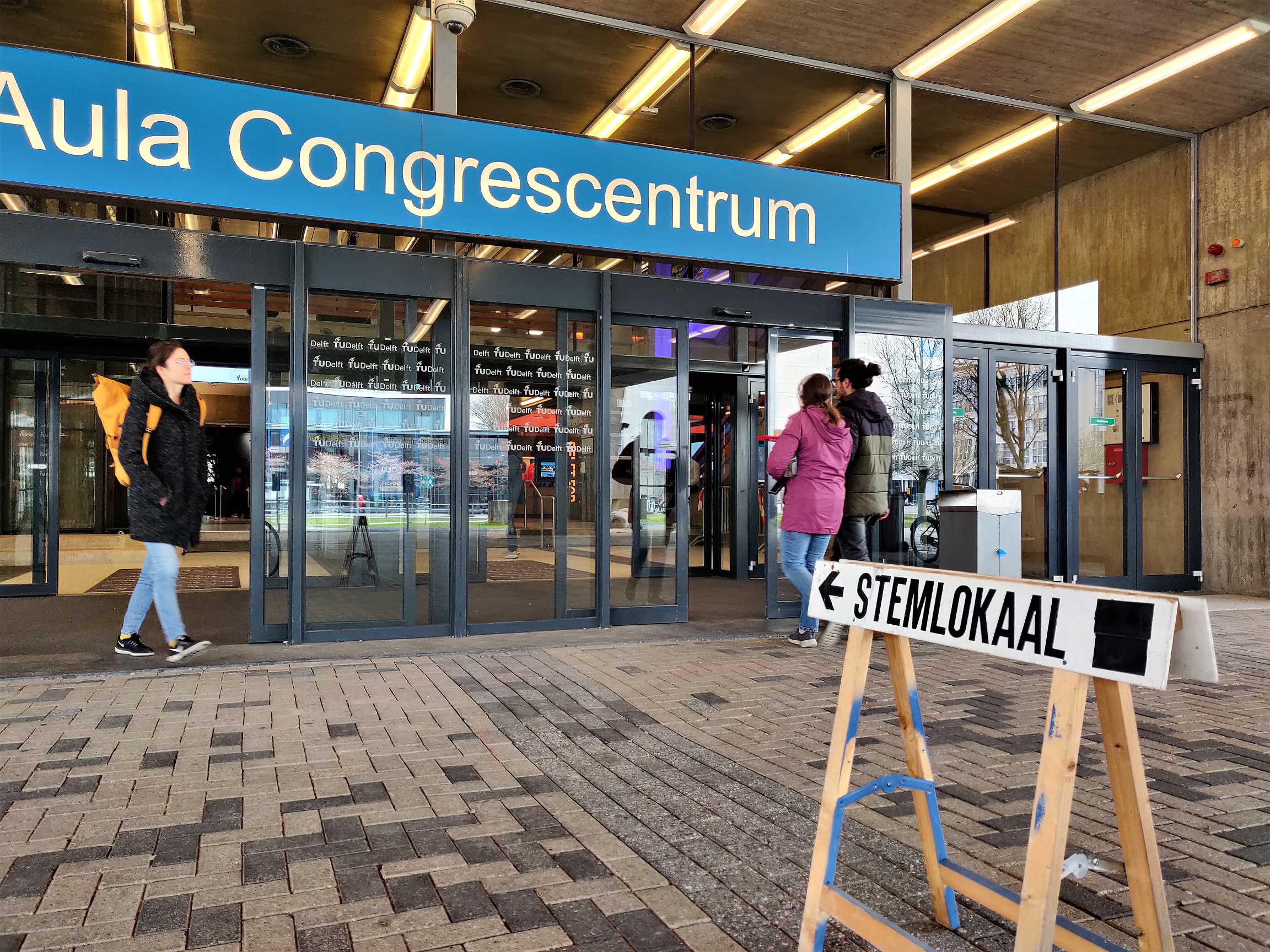The student party Stip won the most votes during the municipal council elections of 14, 15 and 16 March. The turnout was lower than four years ago.
The turnout was 51.6 per cent. (Photo: Marjolein van der Veldt)
Stip won 15.8% of the votes. Then came D66 with 14.6%. GroenLinks came third with 13.6%. GroenLinks lost one seat, D66 won one, and Stip’s number stayed the same. This means that all three of these municipal council parties will have six seats in the Municipal Council. In recent years, they, VVD and PvdA have constituted the Municipal Executive. VVD and PvdA both retain their three seats.
Hart voor Delft won one seat, going from four to five seats. CDA, Onafhankelijk Delft and SP all lost one seat, going down from three to two. The ChristenUnie retains two seats. Newcomer Volt is entering the Municipal Council with two seats. The other newcoming, BIJ1, did not win a seat.
The turnout in Delft, like in the rest of the Netherlands, was low. Only 51.6% of the eligible voters turned up. In 2018 this was 55.4%. These are preliminary figures. The central polling stations will issue the final results of the municipal council elections in Delft on Monday 21 March when the preferential votes and the residual seats will also be assessed. It will then be definite which 39 council members will form the Municipal Council in Delft in the next four years as. The new Municipal Council will be installed on Wednesday 30 March.
Other student cities
In student cities like Eindhoven, Groningen, Leiden, Nijmegen, Tilburg, Utrecht and Wageningen, GroenLinks is the largest party. Student parties gain or retain their seats. ‘Students for Leiden’ gained two seats in the council. It was the first time the party participated, with spearheads like housing, sustainability and hospitality. The Groningen party Student and City rose from one to three seats. Student and Starter (Utrecht) retained its two seats and so did Wageningen Connect, a party for students, young people, internationals and newcomers with a student as its list leader.
Delta, Saskia Bonger/HOP, Bas Belleman



Comments are closed.